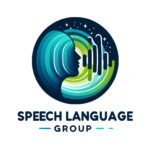Cornet seminar – Felipe Albuquerque – 11/07/2024
Title: The Capacitated p-Location Problem with Territorial Coverage Constraints Date: 11/07/2024 – 11:35 AM Room: S6 Résumé : In spatial planning, the efficient location and allocation of services pose complex challenges across diverse contexts. Our research focuses on the capacitated p-location problem, which aims to select p facilities from a set of potential locations to minimize allocation costs between facilities and consumers with specific demand weights, while respecting capacity constraints. To better model real-world applications, we extended this problem by introducing territorial coverage constraints. We examined the adapted formulation of this expanded problem and developed a heuristic approach to handle larger instances effectively. A case study in France’s PACA (Provence-Alpes-Côte d’Azur) region illustrates the impact of these coverage constraints.



